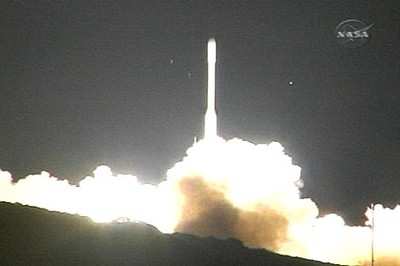Thu, Feb 26, 2009
Advertisement
More News
 Aero-News: Quote of the Day (10.23.25)
Aero-News: Quote of the Day (10.23.25)
“Sport Pilot 2.0 gives more people than ever the opening to pursue their dreams of putting themselves in the pilot seat and enjoying the unique perspectives of flight. This v>[...]
 ANN's Daily Aero-Linx (10.23.25)
ANN's Daily Aero-Linx (10.23.25)
Aero Linx: Canadian Business Aviation Association (CBAA) The Canadian Business Aviation Association (CBAA) is a non-profit association formed in 1961 as Canada's voice for business>[...]
 ANN FAQ: Turn On Post Notifications
ANN FAQ: Turn On Post Notifications
Make Sure You NEVER Miss A New Story From Aero-News Network Do you ever feel like you never see posts from a certain person or page on Facebook or Instagram? Here’s how you c>[...]
 Classic Aero-TV: Kitfox Upgrades Back-Country Undercarriage
Classic Aero-TV: Kitfox Upgrades Back-Country Undercarriage
From 2023 (YouTube Edition): Acme Aerofab Black Ops Gear and Suspension Impress The viability of a backcountry aircraft is a function of numerous purpose-built components and syste>[...]
 Airborne-NextGen 10.21.25: NZ Goes Electric, World Cup UAVs, eAviation Shuttered
Airborne-NextGen 10.21.25: NZ Goes Electric, World Cup UAVs, eAviation Shuttered
Also: SkyFly’s Axe Prototype, USAF CCA, AV Expands Switchblade, DropShip Cargo Drone Air New Zealand has taken its first big step toward electric aviation, flying the US-buil>[...]
blog comments powered by Disqus




